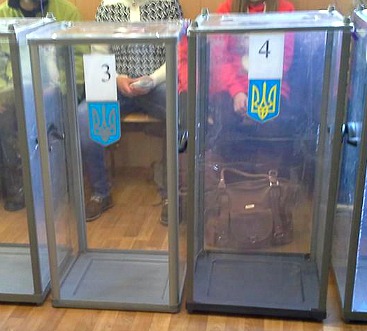Mr. Speaker, Ukraine’s presidential elections will be held in a little over a month, on October 31. These elections will be an important indicator in charting Ukraine’s course over the next 4 years. The stakes are high. Will Ukraine continue to move, even if at a slow and inconsistent pace, in the direction of the supremacy of law over politics, a market economy, and integration with the Euro-Atlantic community? Or will Ukraine regress in the direction of the closed economic and political system that existed during Soviet times? Clearly, the outcome of the elections will have significant implications for United States policy toward Ukraine.
Despite the many internal and external positive changes that have occurred in Ukraine since its independence in 1991, including progress in creating a democratic, tolerant society and the significant role played in the stability and security of Europe, Ukraine still has a long way to go in building a sustainable democracy underpinned by the rule of law. Specifically, Ukraine needs to improve its judiciary and criminal justice system, reduce bureaucratic arbitrariness and rid itself of the stifling menace of corruption. Indeed, corruption is exacting a huge toll on Ukrainian institutions, eroding confidence in government and support for economic reforms, and discouraging domestic and foreign investment.
Mr. Speaker, I am concerned about reports of violations in the conduct of the election campaign, including in the signature-gathering process and inappropriate meddling by officials, especially on the local level. I am also troubled by governmental actions against the free media, including the recent seizure of bank accounts of STB independent television and the suspension of four independent television stations in Crimea. The harassment of the print and electronic media is inconsistent with OSCE commitments. It undermines Ukraine’s overall positive reputation with respect to human rights and democracy, including its generally positive record in previous elections. The Helsinki Commission, which I chair, was in the forefront of supporting respect for human rights and self-determination in Ukraine during the dark days of Soviet rule.
We have viewed, and still view, Ukraine’s independence as a milestone in Europe’s history. However, in order to consolidate its independence and reinforce internal cohesion, Ukraine needs to speed its transition to democracy and market economy. It needs to work toward greater compliance with OSCE standards and norms. The OSCE Office for Project Coordination in Ukraine can be a useful tool to assist Ukraine in this regard and I hope that the Ukrainian government will take advantage of and benefit from the OSCE presence. Despite frustrations with certain aspects of Ukraine’s reality, it is important for both the Congress and the Executive Branch to continue to support an independent, democratic Ukraine, both in terms of policies designed to strengthen United States-Ukraine relations, as well as with assistance designed to genuinely strengthen democratic and free-market development. The key is to be patient, but persistent, in encouraging progress.




